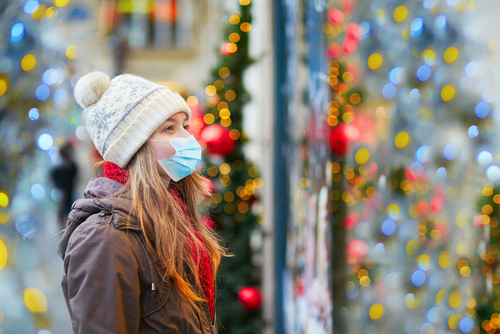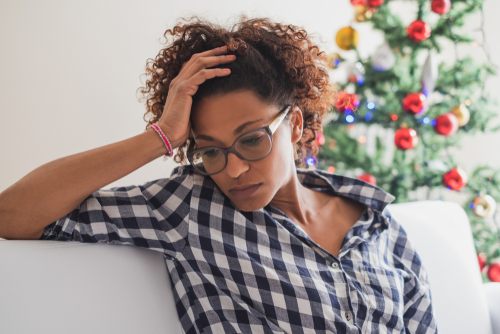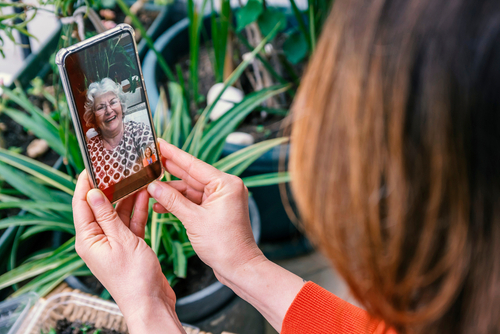Have you been wondering how to get back to the new normal in the coming weeks? That’s been the top focus of millions of Americans lately so you have plenty of company if so. Worries over what to do in a pandemic are beginning to be replaced with concerns over what to do after one.
The year of the pandemic has brought a tsunami of anxiety and unknowns along with it. We went into the lockdowns and quarantine measures with plenty of unknowns and we’re exiting the struggle the same way.
Some out there may act like they have all the answers on how returning to a new normal will go. Although some may have solid guesses, no one knows for sure.
So, what do you do when no one alive has gone through anything quite like this before? Although how the future details will unfold is anyone’s guess, here are some things to keep in mind as this process unfolds.
Remember Things Likely Won’t Go as Expected
That’s why everyone’s calling the recovery process the new normal. And yet we’re tempted to get frustrated when that new normal doesn’t immediately look like the old one.
At the start of the pandemic, we hoped that we’d just isolate for a while, eventually come out of hiding and then go back to business as usual. Economically, that hope was viewed as a ‘V’ where you go down for a while and right back up.
But as complex people, economics is only a small part of the equation (Although economics is quite complex in itself). Now, we likely aren’t looking at a pretty, symmetrical ‘V’ rebound. The climb to the new normal could be more prolonged and nuanced than we all originally hoped. The pandemic phases being introduced at the state level also add to this complexity and prolonged recovery.
With that in mind, we don’t want to become raging pessimists. But, at the same time, we need to be realistic. There will be unknowns, setbacks and disappointments on the road ahead.
In her “Psychology Today” article entitled How to Manage Gracefully in the New Normal, Jennifer Kunst Ph.D. shares the following:
“First and foremost, manage as gracefully as you can. Accept the fact that this is hard. We are going to have ups and downs; that is the natural course of a psychological struggle like this. All we can do is try to take care of our mental and physical health.”
Do your best to take a day at a time and do what you can in a day without worrying. You can tackle tomorrow’s problems tomorrow. But you only have so much strength for today and that’s OK.
Celebrate Normalcy When You Notice It
There, we got the disappointing stuff out of the way first. Now, comes the part we’re all looking forward to.
As we weave our way through this year, we’ll get to experience aspects of our lives we’ve missed for a while. That could eventually mean dining at a restaurant, attending a family get-together, settling into a predictable work routine or watching your favorite sports team.
When these milestones happen for the first time in quite a while, you could bemoan the time you missed. But there’s a far better approach. Celebrate them instead!
If the pandemic taught us anything, it’s showed us that the things we take for granted are far more vulnerable than we’ve assumed. For that reason, when you see even the smallest flickers of normalcy return, make a big deal of it.
Heck, get some cake and ice cream if you want (even if it’s not anyone’s birthday). Just don’t let that moment fade away without appreciating it. Doing this will also help you through those rough patches we’ve already talked about.
Yes, sometimes life can feel like drudgery, but it is really a gift and a privilege. Take time to celebrate life as you ease into the new normal.
It’s OK to Be Unsure of Your Next Steps
You and others may feel a bit ‘wobbly’ at first as you re-emerge. We’re all a little rusty at this point and we don’t quite know what to do next. In many ways, we’ll be walking into a different world when we return to our routines.
Just remember that that’s OK and to be expected. We’ll all need to cut each other some slack. Although leaving our normal was stressful, returning to our schedules will again bring the stress that change always stirs up.
You Still May Experience Grief During this Season
Sometimes grief or trauma doesn’t hit you until after the fact. This is a surprise to many who aren’t professionally trained to handle mental health struggles.
You may feel like you sailed through the past few months of stay-at-home orders relatively unscathed. And then it could all finally weigh down on you.
You may start to feel like things aren’t going well and become anxious because you should be ‘fine’. This is the new normal, after all. “This is what everyone was waiting for, wasn’t it?” you may say.
Just remember that grief can hit you during and/or after a difficult time in your life. If you begin to struggle, don’t hesitate to get help through e-therapy and do your best not to isolate yourself. You’d be surprised to discover how many out there are feeling just like you.
Counseling Can Help You Get Through ‘The New Normal’
If you find yourself struggling as we get back to the new normal, feel free to reach out to us. Valencia Relationship Institute is here to help whether you need individual therapy, marriage counseling or couples counseling.
We can offer evidenced-based ways to improve your life. That could mean speaking with a virtual counselor or eventually visiting one of our offices. We serve the Toluca Lake/Burbank, CA and Valencia CA regions and may also be able to provide telecounseling outside of that range. Feel free to schedule an appointment with us.




